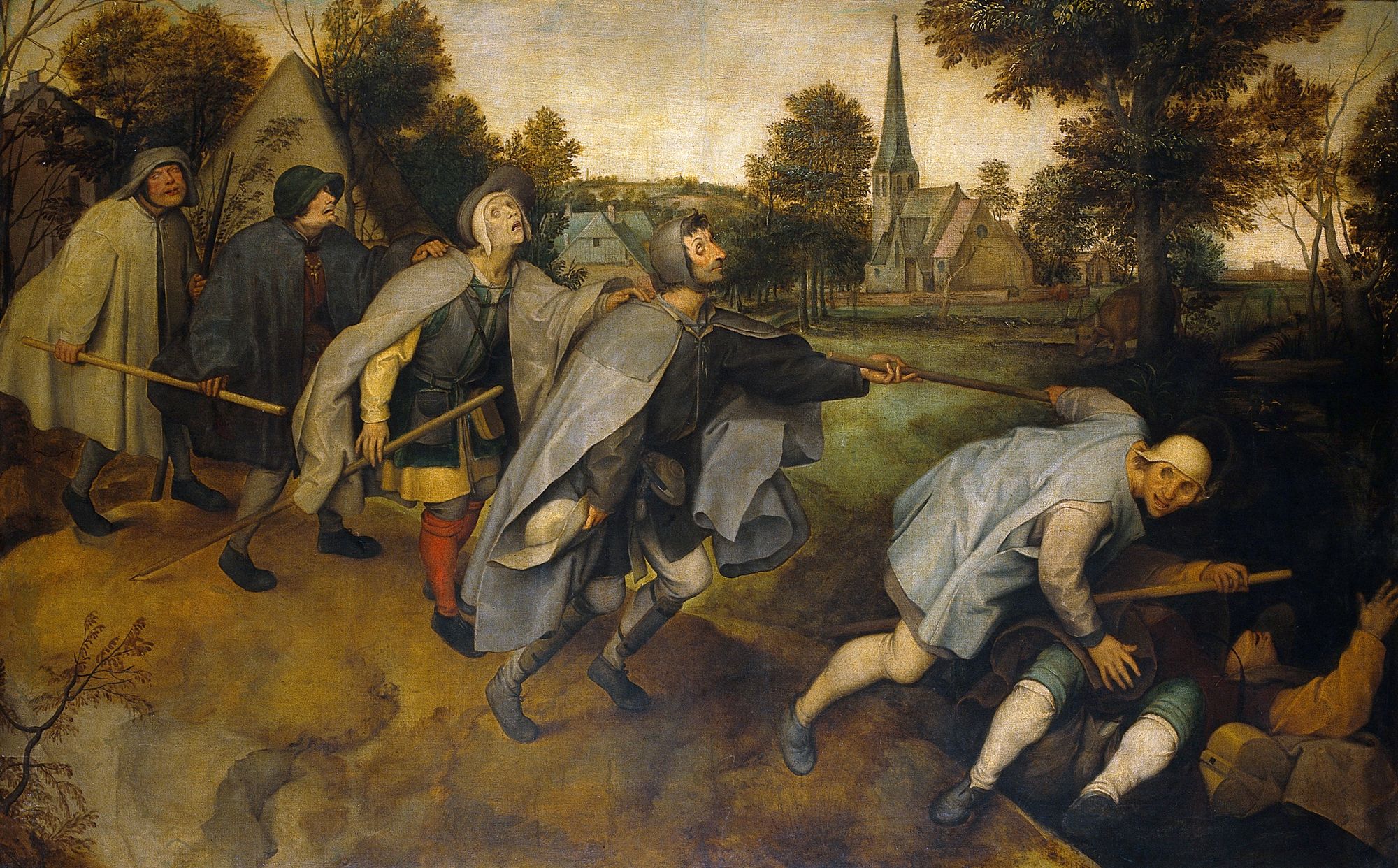Governance by Laws Without Legislation
Carl Menger, the founder of the Austrian school of economics, is a remarkably popular economist in crypto twitter because Bitcoin builds on so many of his ideas. One of Menger’s overlooked insights is that in his treatise On The Origins of Money he lays out not only a framework of how money can emerge independently of a central authority but also, by extension, a comprehensive economic theory of social institutions.
Menger was clearly aware of the potential to extend his idea beyond money. In Investigations into the Method of the Social Sciences, he reflects on whether the most noteworthy problem of the social sciences is:
“How can it be that institutions which serve the common welfare and are extremely significant for its development come into being without a common will directed toward establishing them?”
I couldn’t put it better than Jesus Huerta de Soto in his monumental “Money, Bank Credit and Economic Cycles”:
“Menger discovered that institutions appear through a social process composed of a multiplicity of human actions, which is always led by a relatively small group of individuals who, in their particular historical and geographical circumstances, are the first ones to discover that certain patterns of behavior help them attain their goals more efficiently. This discovery initiates a decentralized trial and error process encompassing several generations, in which the most effective behavior patterns gradually become more widespread as they successfully counter social maladjustments. Thus there is an unconscious social process of learning by imitation which explains how the pioneering behavior of these most successful and creative individuals catches on and eventually extends to the rest of society.”
Isn’t this a good description of what most of us think Bitcoin adoption will look like? But what makes Bitcoin special if the let’s-solve-X-with-the-blockchain entrepreneur also see this regarding his token? My opinion is that the word institution matters in this case. I’m going to use it in opposition to organization to support an argument for why Bitcoin is indeed different.

Law Versus Legislation
It should have come to mind to most Austrians that part of Hayek’s work is the extension of Menger’s abovementioned idea to law and juridical institutions (think about his proposition of common law as an example of spontaneous order). But I want to focus on another extraordinary author who not only heavily influenced Hayek and anticipated some of his ideas but also who provided a different view of this process in some respects.
Bruno Leoni was a political philosopher, lawyer, linguist and student of Austrian economics in the decades between 70BB and 40BB (Before Bitcoin, for the uninitiated). He was the dean of the Department of Political Sciences at the University of Pavia in Italy, president of the Mont Pelerin Society and his most famous book Freedom and the Law is based on a series of lectures he gave in 1958 in Claremont, CA. Some of the issues he discusses are too thorny for my pay grade, but here the relevant question he poses is, as summarized by Murray Rothbard in his review: does law require legislation?
Leoni’s answer is not only a resolute no but also that the most important legal systems devised by western civilization were successful precisely because this distinction was taken into account. Nowadays the idea of laws without legislation will, unfortunately, sound foreign to most - just like the concept of money without government fiat does. But if Leoni is directionally correct, several of his insights might provide us with a more complete appreciation of the Bitcoin governance model already very well described by Pierre Rochard.
Bruno Leoni goes through great lengths to show that in the Roman private law system the word law did not have the same meaning we attribute to it nowadays. Law was not an abstract, imposed creation but the embodiment of ground rules discovered over a long period of time by independent jurists. Even when “legislation” was introduced, it was mostly a mere formalization of already established general principles. As Leoni puts it:
The Roman jurist was a sort of scientist: the objects of his research were the solutions to cases that citizens submitted to him for study, just as industrialists might today submit to a physicist or to an engineer a technical problem concerning their plants or their production. Hence, private Roman law was some thing to be described or to be discovered, not something to be enacted-a world of things that were there, forming part of the common heritage of all Roman citizens. Nobody enacted that law; nobody could change it by any exercise of his personal will. This did not mean absence of change, but it certainly meant that nobody went to bed at night making his plans on the basis of a present rule only to get up the next morning and find that the rule had been overturned by a legislative innovation.
The main problem with the legislative process is that it does not guarantee what Leoni calls the certainty of the law. He doesn’t use this term in the sense of writing precise rules, but in the sense of guaranteeing that today’s law will last until tomorrow without being abrogated by a subsequent law. This is not an issue that only the Romans took into consideration. Without this distinction it is impossible to fully grasp the concept of rule of law in the Anglo-Saxon tradition — although Leoni thoroughly delves into Anglo-Saxon law and the Continental Civil Codes to support his argument, this text will stick to the comparison to the Roman private law for the sake of brevity.
Leoni also demolishes the argument that the modern legislative process is more “scientific” than the traditional Roman “judge-made” law process. Scientific and technological progress shares nothing in common with the modern idea of legislation. He uses this analogy to show that another problem with the legislative process is the idea that legislators are assumed to represent their constituents. This is something altogether extraneous to the procedures adopted for scientific and technological progress:
The very idea that a scientist or a technician should be “represented” by other people in the carrying on of scientific or technical research appears as ridiculous as the idea that scientific research should be entrusted, not to particular individuals acting as such even when they collaborate in a team, but to some kind of legislative committee empowered to reach a decision by majority vote.
The fundamental incompatibility between a true free market system and laws centrally devised by authorities is often overlooked by several free-market enthusiasts. Interestingly, the Bitcoin community seems to incorporate this concept at a very deep level when it decides upon and implements which verification rules the network should use to deem a transaction valid (i.e. its laws). This process can either be treasured and continue to look more like the “judge-made” system Leoni described or degrade into a set of Orwellian rules like the one below.
EOS Alliance is pleased to acknowledge the first ever arbitration ruling from ECAF, returning stolen funds from phishing attempts to users. This is a milestone achievement for EOS and blockchain, and a new standard for decentralized systems. #blockchain $eos @bytemaster7 @TBCox pic.twitter.com/9cYE1y2mEE
— The EOS DAO (@eosdao) November 8, 2018
In that sense, the Bitcoin caretaker (developers included) is at his best when he identifies the institutional essence demonstrated by the network participant’s evolutionary process. He does not pretend to be primarily original or clever, but rather he strives to discover or serve certain fundamental principles and apply them to new situations and problems. Importantly, he works independently and is not supposed to act as a civil servant, despite the multiple enforcement attempts on him to act otherwise. If this paragraph makes any sense, it might be interesting to consider that this is almost literally how Jesus Huerta de Soto describes the occupation of the classical Roman jurists.
Bitcoin is a bold attempt to create a social institution through a peer-to-peer consensus system that will evolve on its own, like a language or a classic legal institution. On the other hand, all other projects — incorrectly bundled with Bitcoin — are trying to build an organization, which will, in turn, evolve through a legislative process. This is not a distinction one can simply pivot away from, independent of which legislative process is chosen. One is free to argue whether such a project is better or worse than Bitcoin, but saying it “builds on top of Bitcoin” is a mistake.
As Saifedean Ammous claims in his unavoidable The Bitcoin Standard: No coin other than Bitcoin can lay a credible claim to being outside the control of anyone else. This should not be read as a lack of governance, but as the most time-tested governance system mankind has ever developed.
References:
- On The Origins of Money by Carl Menger (1892)
- Money, Bank Credit and Economic Cycles by Jesus Huerta de Soto (2006)
- Freedom and the Law by Bruno Leoni (1961)
- “Does Law Require Legislation?” is a critical review of Freedom and Law by Murray Rothbard and Bruno Leoni and the Austrian Tradition is a short talk about his main ideas.
- The Bitcoin Standard: The Decentralized Alternative to Central Banking by Saifedean Ammous (2018)

